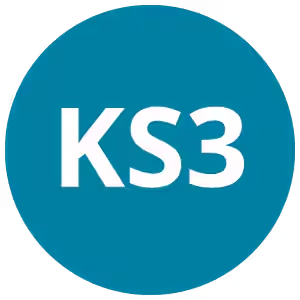Key Stage 3 represents a crucial phase in the UK’s educational system for students aged eleven to fourteen. This stage serves as a bridge between primary education and the higher performance levels anticipated in secondary school, ultimately focusing on preparing students for the GCSEs and any subsequent advanced studies.
Key Stage 3 Curriculum
The Key Stage 3 curriculum expands upon the knowledge and skills already learned at Key Stage 2. It includes the core subjects of English, mathematics, and Science, as well as other subjects such as geography, history, information technology, and art and design. KS3 seeks to extend the educational objectives regarding the advanced knowledge and skills learners possess while incorporating the concept of creativity.
Importance of This Phase of Education
Every student in this age range experiences linguistic and emotional changes. Education during this time is very important as it determines how well the students will perform academically and develop their character; hence, learning conditions must be favourable.
Issues Confronted During Key Stage Three
Students have higher academic expectations and more sophisticated social interactions and friendships. These expectations create tension and fatigue, which affects the students’ class work and self-esteem.
Assisting Students Eucalyptusers To Key Stage 3
Parents, guardians, and tutors play a vital role. They support students in overcoming academic and social pressure and becoming strong and self-confident individuals.
Extracurricular Activities and Their Contribution
Engagement in extracurricular activities offers tremendous advantages to students. It improves their interpersonal relations, relieves academic pressure, and helps them acquire other skills and talents.
Assessment and Evaluation
Periodic evaluations help monitor the student’s success and deficits and prepare the student for the GCSE subject selections.
Status Of Students – Transitioning To GCSE
Key stage 3 is particularly vital in preparing for the games. This behaviour is generally not normal in middle school, but effective preparation methods and knowledge of what will be expected in due course will help soften this adjustment.
Use of Technology and its Purpose at Key Stage 3
Technology is an integral part of learning, and digital tools, for instance, broaden the scope of knowledge. However, technology must be used in moderation to make the learning process successful, and traditional learning structures must be believed in.
Case Studies: Successful Key Stage 3 Programs
Providing evidence as to which schools have good Key Stage 3 age Programs yields excellent ideas for effective schools and educational practices that other schools can replicate.
Advice for New Key Stage 3 Students
Judicious advice for students can facilitate their entrance to Key Stage 3, where they do not suffer in school in the various aspects of school life, especially during these important years.
The Role of Special Educational Needs (SEN) Support
It is important to have a position of SEN support for everyone in the learning environment. SEN support supports learning strategies to provide an environment where every student will succeed.
Future Trends in Key Stage 3 Education
Understandably, future adjustments in these aspects may diverge students’ and teachers’ perceptions of Key Stage 3.
Parental Involvement and Its Effectiveness
Parents involved with their children will likely motivate them, improving student results.
Conclusion
Completing Key Stage 3 significantly impacts the average learner as it contributes to possible future achievements. Middle school years and their benefits can be optimised with the help of appropriate and timely measures by the students, parents, and education providers.



